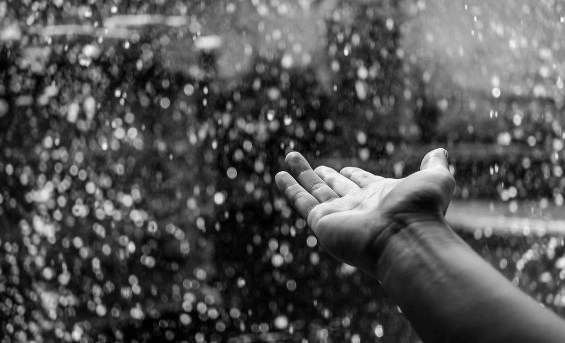Is it safe to drink rainwater?
 You’ve probably asked yourself this question a lot of times, and you would not be alone in doing so. The answer to this age-old question is: yes, it is completely safe to drink rainwater, depending upon a few considerations. But we’ll get to those considerations in a minute.
You’ve probably asked yourself this question a lot of times, and you would not be alone in doing so. The answer to this age-old question is: yes, it is completely safe to drink rainwater, depending upon a few considerations. But we’ll get to those considerations in a minute.
Rainwater is the purest form of water there is. Compared to your public drinking water supply, it is relatively low in mineral content. (If we were to actually consider it, rainwater forms part of the public water supply for most of the world’s population. As we all know, our public water supply comes from two main sources: ground water sources [such as wells] and surface water sources [e.g. lakes, rivers, and streams]. The latter acquires a lot of rainwater during times of torrential downpour.) Rainwater is also considered to have lower levels of pollution, mold, pollen, and other kinds of contaminants compared to our public water supply. Keep in mind, though, that rain can and does pick up some amounts of bacteria as well as dust and even the occasional insect parts, so it is crucial that you filter rainwater before you attempt to drink it.
So what are the considerations you should keep in mind when drinking rainwater? While it is mostly safe, you should steer clear of drinking it if it falls near any radioactive sites, such as Chernobyl or Fukushima. Likewise for rainwater that falls near chemical plants and factories. Also, don’t drink rain that has run off buildings or even plants because you could pick up toxic chemicals and dirty particles from these surfaces. Finally, common sense will tell you not to collect any rain that has fallen directly on the ground and collected into puddles. The best and safest way that you can collect rainwater is by using storage containers made specifically by a reputable company that produces steel rainwater tanks for the purpose of directly harvesting rain. If you live in an urban area you should filter your rainwater if you are going to drink or cook with it. This way, you won’t pick up any kinds of contaminants and can collect great amounts of rain in its purest form. It’s important that you allow the rainwater to sit for some amount of time before you use it so that any heavy particulates and dirty matter can sink to the bottom first.
After you’ve collected rainwater, then you should proceed to making it utterly safe for drinking. There are two ways by which you can do this: boiling and filtration. Through boiling, you can kill off any pathogens; while filtration simply removes chemicals, pollen, dust, mold, and other particulates.
There are many benefits to drinking rainwater, some of which are the following:
- It contains alkaline pH, which has detoxifying effects and also promotes a healthy digestion. The toxins and free radicals we ingest and absorb every day make our blood more acidic. Rainwater, with its alkaline pH, helps to neutralize our blood pH, thus helping to make our body function in a more efficient manner.
- It has low mineral content. The public drinking water supply in many parts of the world is often laced with fluoride and chlorine for the purpose of killing off germs in the water. However, sometimes too much of these minerals are put in the supply, and this can cause various health problems like headaches, gastritis, and damaged body organs. With rainwater, you won’t have this kind of problem.
- It promotes healthy skin and hair. Since rain lacks minerals, this makes it very mild as a natural water. This is good for our hair and skin, as its gentle quality and its alkaline pH helps to maintain the skin’s natural moisture and promote healthy hair growth.
If you haven’t started collecting rainwater in your household, this is the perfect time to start doing so. Not only will you make your life better but you will also be doing your part for the conservation of the environment.



Leave A Comment